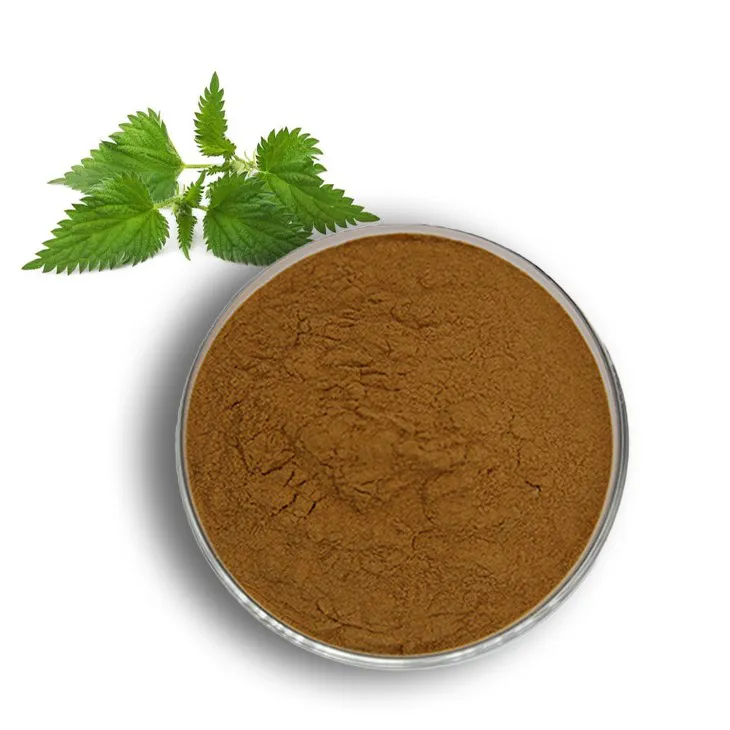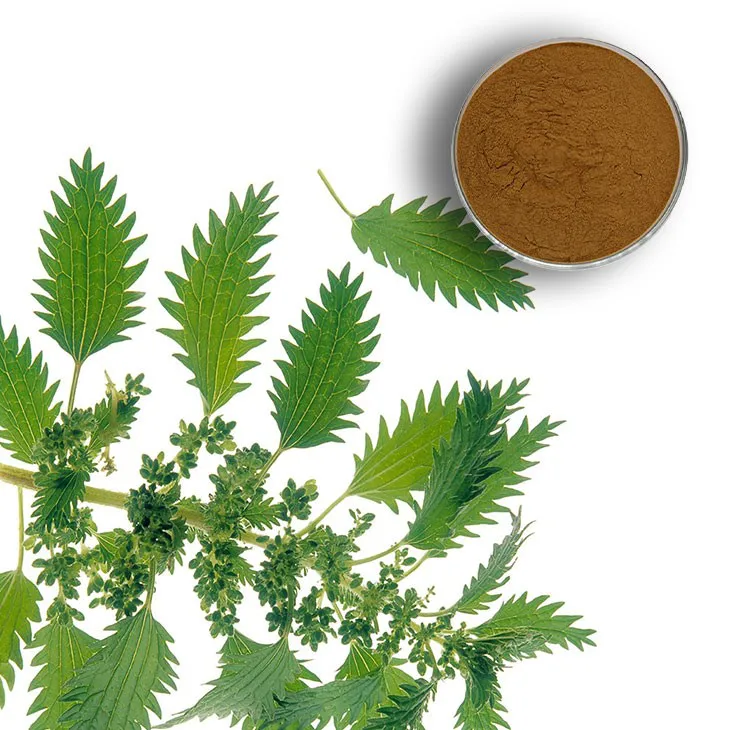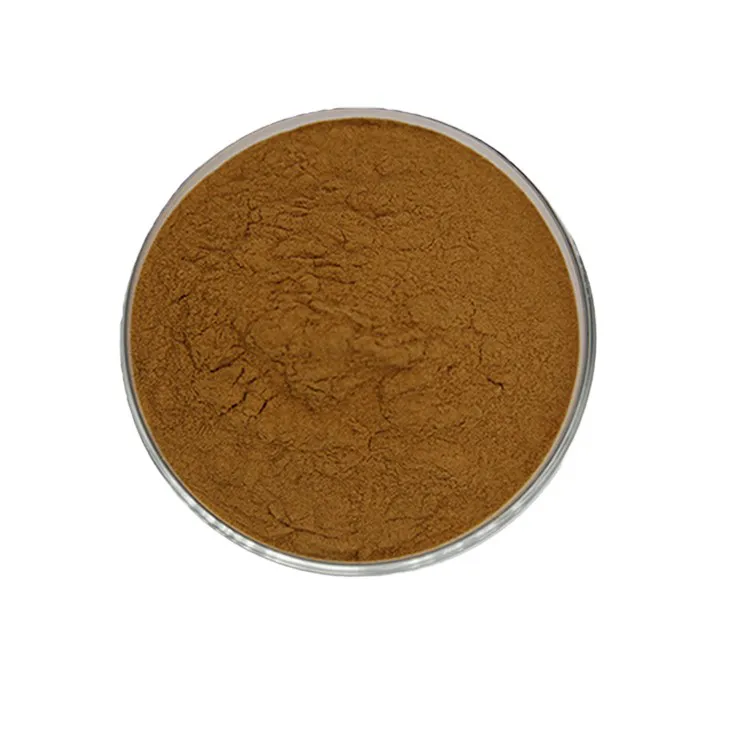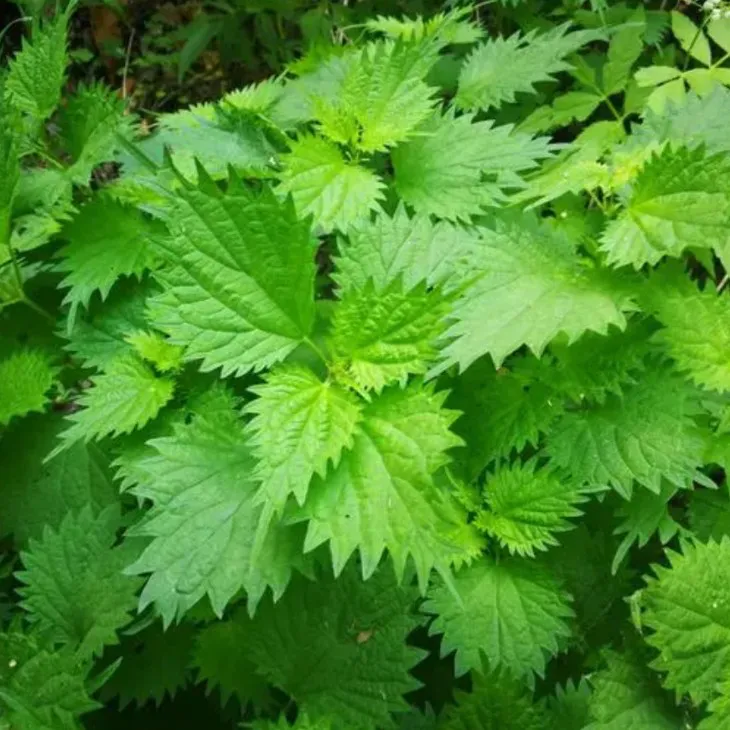- 0086-571-85302990
- sales@greenskybio.com
Nettle Root Extract: Should You Use It for Skin Care?
2024-11-13

Introduction
Skincare has evolved over the years, with consumers constantly on the lookout for natural ingredients that can offer a range of benefits. One such ingredient that has gained attention in recent times is Nettle Root Extract. But what exactly is it? And should you incorporate it into your skincare routine? This article will delve into the potential benefits, possible drawbacks, and the scientific research behind using Nettle Root Extract for skin care, as well as how it may affect different skin types.

What is Nettle Root Extract?
Nettle root, also known as Urtica dioica, has a long history of use in traditional medicine. The extract is obtained from the roots of the nettle plant. It contains a variety of bioactive compounds, such as flavonoids, phenolic acids, and polysaccharides. These compounds are believed to be responsible for the extract's potential skincare properties.

Potential Benefits
Anti - Inflammatory Properties
Inflammation is a common skin concern, whether it's due to acne, eczema, or other skin conditions. Nettle root extract has been studied for its anti - inflammatory properties. Flavonoids present in the extract, such as Quercetin, are thought to play a role in reducing inflammation.
Research has shown that these flavonoids can inhibit the production of inflammatory mediators in the skin, such as cytokines. By doing so, they may help to soothe irritated skin and reduce redness.This makes nettle root extract a potentially valuable ingredient for those with sensitive or inflamed skin.
Antioxidant Properties
Antioxidants are crucial for skin health as they help to protect the skin from damage caused by free radicals. Free radicals are unstable molecules that can cause oxidative stress, which in turn can lead to premature aging, wrinkles, and dull skin. Nettle root extract is rich in antioxidants. Phenolic acids, like caffeic acid, are among the antioxidants found in the extract.
- These antioxidants work by neutralizing free radicals, preventing them from causing damage to skin cells.
- Regular use of skincare products containing nettle root extract may help to keep the skin looking youthful and healthy by reducing the signs of oxidative stress.
Benefits for Oily Skin
Nettle root extract may also have benefits for oily skin. It has been suggested that the extract can help to regulate sebum production. Sebum is the natural oil produced by the skin's sebaceous glands.
- Excessive sebum production can lead to oily skin, clogged pores, and acne.
- Some studies indicate that nettle root extract can modulate the activity of the sebaceous glands, reducing sebum production without completely drying out the skin.

Possible Drawbacks
Allergic Reactions
While nettle root extract is generally considered safe for most people, some individuals may be allergic to it. Contact with the extract can cause skin irritation, itching, and redness in sensitive individuals.
It's important to perform a patch test before using any skincare product containing nettle root extract. Apply a small amount of the product to a small area of skin, such as the inside of the wrist, and wait 24 - 48 hours to see if any adverse reactions occur.If an allergic reaction is observed, the product should be discontinued immediately.
Lack of Standardization
One of the challenges with using nettle root extract in skincare is the lack of standardization in its production. Different extraction methods can result in extracts with varying compositions and potencies.
- This lack of standardization makes it difficult to determine the exact dosage and effectiveness of the extract in skincare products.
- It also means that consumers may not always be getting the expected results from products containing nettle root extract.

How Nettle Root Extract Affects Different Skin Types
Normal Skin
For those with normal skin, nettle root extract can be a beneficial addition to a skincare routine. Its antioxidant properties can help to maintain the skin's natural health and prevent premature aging.
- The anti - inflammatory properties can also protect the skin from occasional environmental stressors that may cause minor inflammation.
- Using a product with nettle root extract, such as a moisturizer or serum, can keep normal skin looking and feeling its best.
Dry Skin
Although nettle root extract may help to regulate sebum production, it can still be used for dry skin. When formulated in the right skincare product, it can provide antioxidant protection.
- However, it's important to choose products that also contain hydrating ingredients, such as hyaluronic acid or glycerin, to avoid further drying out the skin.
- The anti - inflammatory properties can be beneficial for dry skin that may be prone to irritation, especially during colder months or in dry environments.
Combination Skin
Combination skin can be a challenge to manage, as it has both oily and dry areas. Nettle root extract can be useful in this case.
- It can help to control sebum production in the oily areas, such as the T - zone (forehead, nose, and chin).
- At the same time, its antioxidant and anti - inflammatory properties can benefit the drier areas of the face, providing overall skin health improvement.
Conclusion
Nettle root extract has shown potential in skincare with its anti - inflammatory and antioxidant properties. It may offer benefits for different skin types, including oily, normal, dry, and combination skin. However, there are also possible drawbacks, such as the risk of allergic reactions and the lack of standardization in production.
Before incorporating nettle root extract - containing skincare products into your routine, it's advisable to do your research, read product labels carefully, and perform a patch test if you have sensitive skin.With proper caution and consideration, nettle root extract can be a valuable addition to the world of skincare.
FAQ:
What are the main benefits of nettle root extract for skin care?
Nettle root extract is believed to have anti - inflammatory and antioxidant properties. The anti - inflammatory property can help soothe irritated skin, reducing redness and swelling. For example, for those with sensitive or acne - prone skin, it may calm down the inflammation caused by various factors. The antioxidant property helps combat free radicals, which can slow down the aging process of the skin, such as reducing the appearance of wrinkles and fine lines.
Are there any possible drawbacks of using nettle root extract in skin care?
Some people may be allergic to nettle root extract. Allergic reactions can range from mild skin itching and redness to more severe symptoms like swelling. Also, if the extract is not properly processed or sourced, it may contain impurities that could potentially harm the skin. Additionally, since it has certain active properties, overuse might disrupt the skin's natural balance.
How does nettle root extract affect oily skin?
For oily skin, the anti - inflammatory property of nettle root extract can be beneficial. It may help reduce the inflammation associated with overactive sebaceous glands. By doing so, it could potentially regulate sebum production to some extent, without completely drying out the skin. This can lead to a reduction in the shiny appearance and clogged pores that are often associated with oily skin.
Can nettle root extract help with dry skin?
Although nettle root extract has antioxidant and anti - inflammatory properties, it may not be the primary ingredient for treating dry skin. However, its antioxidant properties can help protect dry skin from environmental damage. If combined with other moisturizing and skin - nourishing ingredients in a skincare product, it can contribute to overall skin health for dry skin types.
Is nettle root extract suitable for all skin types?
No, it is not suitable for all skin types. As mentioned before, some people may be allergic to it. Sensitive skin types need to be cautious when using products containing nettle root extract as it may cause irritation. While it can be beneficial for oily and normal skin in terms of its anti - inflammatory and antioxidant effects, it may not be as effective or well - tolerated for extremely dry or damaged skin without proper formulation in a product.
Related literature
- The Antioxidant Activity of Nettle (Urtica dioica) Root Extracts in Skin Health"
- "Investigating the Anti - Inflammatory Effects of Nettle Root Extract on Skin Inflammation Models"
- "Nettle Root Extract in Cosmetics: A Review of Efficacy and Safety"
- ▶ Hesperidin
- ▶ citrus bioflavonoids
- ▶ plant extract
- ▶ lycopene
- ▶ Diosmin
- ▶ Grape seed extract
- ▶ Sea buckthorn Juice Powder
- ▶ Beetroot powder
- ▶ Hops Extract
- ▶ Artichoke Extract
- ▶ Reishi mushroom extract
- ▶ Astaxanthin
- ▶ Green Tea Extract
- ▶ Curcumin Extract
- ▶ Horse Chestnut Extract
- ▶ Other Problems
- ▶ Boswellia Serrata Extract
- ▶ Resveratrol Extract
- ▶ Marigold Extract
- ▶ Grape Leaf Extract
- ▶ blog3
-
Cranberry Plants and Skin - care Products.
2024-11-13
-
Green Tea Extract
2024-11-13
-
Red Vine Extract
2024-11-13
-
Nutmeg Extract
2024-11-13
-
Cranberry Extract
2024-11-13
-
Polygonum Cuspidatum Extract
2024-11-13
-
Calendula Extract
2024-11-13
-
Black Rice Extract
2024-11-13
-
Moringa powder
2024-11-13
-
Purple Sweet Potato Extract
2024-11-13
-
Europen Bilberry Extract
2024-11-13





















